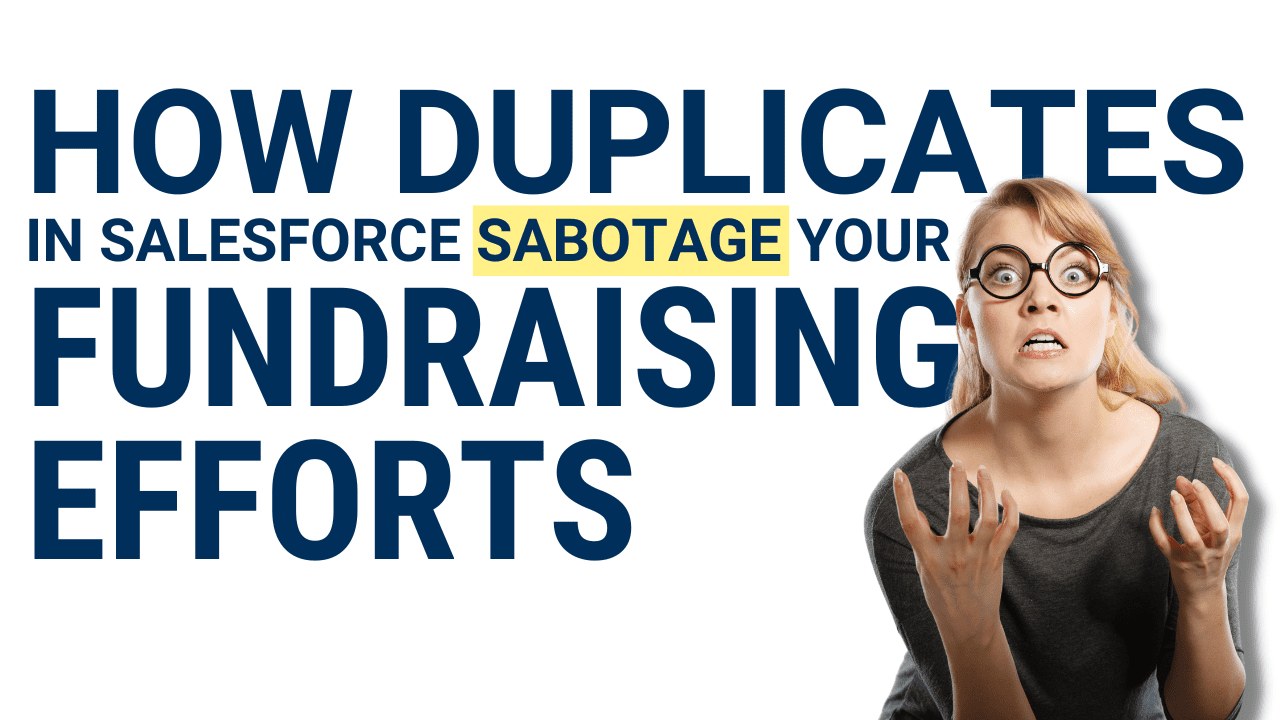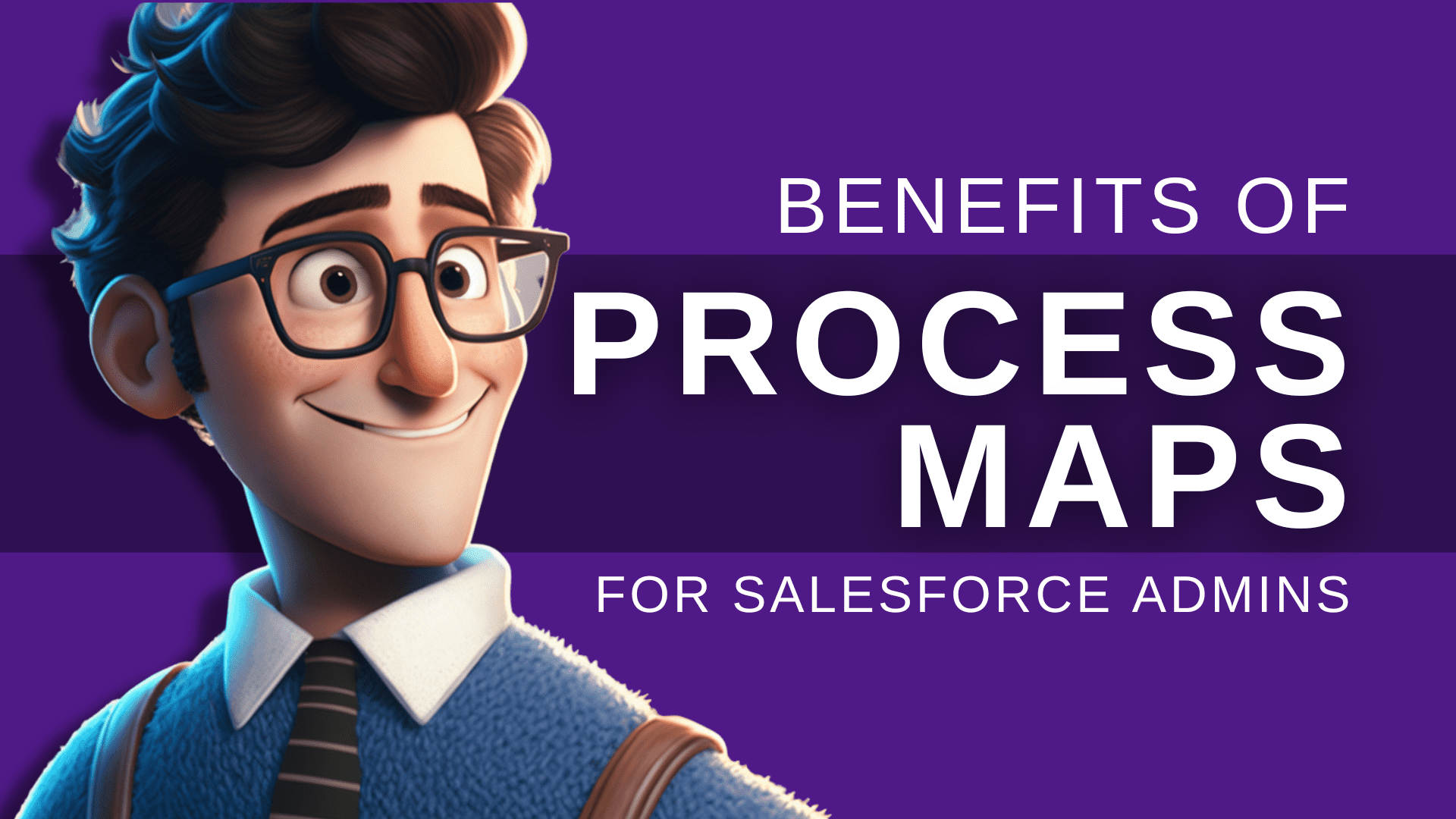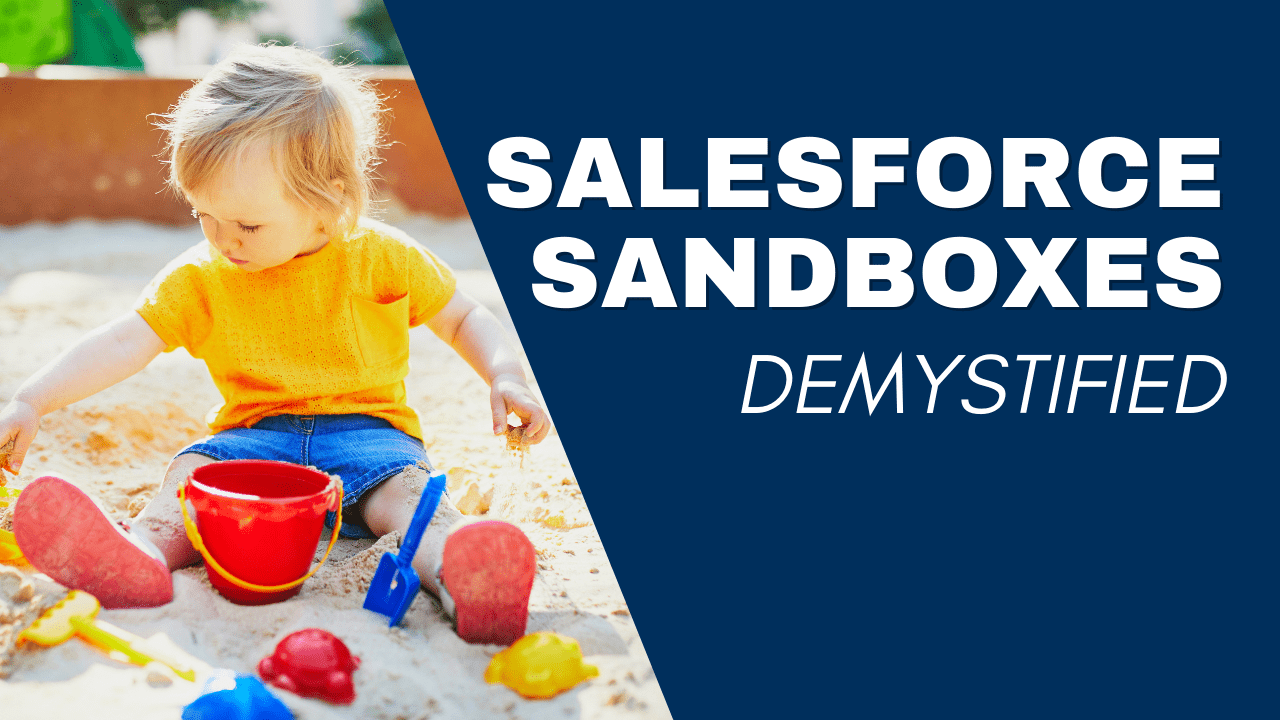How Duplicate Records Can Impact Your Nonprofit’s Fundraising Efforts

You may know the importance of maintaining clean data in your Salesforce instance as a nonprofit. Data is essential for nonprofits as it helps inform strategic decision-making and drives progress toward organizational goals.
While many admins understand that duplicates can result in inaccurate reporting and incomplete data sets, few consider the potential impacts on their organization’s bottom line and success rate.
In this post, we will explore how duplicates in your Salesforce instance can cost your nonprofit both time and valuable resources so that you can avoid them at all costs.

Reduced Efficiency
The presence of duplicate data in a nonprofit’s Salesforce instance can severely impede productivity and efficiency.
For example, when manual entries are duplicated across records, productivity decreases as employees need to spend more time working through redundant information.
This results in lost productivity and reduces the amount of work done efficiently. In addition, utilizing a single source of truth with no duplicates helps to save time and effort when comparing or consolidating reports.
Avoiding duplicate records across fields can meaningfully improve productivity by enabling faster decision-making. Without timely and accurate data consolidation, organizations will struggle to identify areas for improvement due to a lack of complete and centralized data; this prevents them from achieving optimal performance in the future.

Wasted Resources
Keeping duplicate data in a nonprofit’s Salesforce instance can have a substantial financial and time-costly impact on operational performance.
For example, an organization cleaning up duplicate records could divert time from essential operations like outreach campaigns or reporting tasks. Duplicate entries can also lead to incorrect data analysis, causing time to be spent producing inaccurate reports or other resources with incorrect information.
Moreover, suppose the time is taken away from staff or volunteers to manually “clean up” the data through manual entry and filtering processes. In that case, it can also adversely affect an organization’s budget.
In conclusion, eliminating unnecessary and redundant data can help nonprofits make more informed decisions that support their mission while saving money and valuable time.

Missed Opportunities
Having duplicate data in Salesforce can be a significant headache for charitable organizations, making it challenging to identify donors and potential fundraisers.
Without accurate information, organizations may miss out on opportunities to engage individuals in charitable giving or collaborative fundraising efforts. This can create a challenge when attempting to keep track of donations, assess progress toward fundraising goals, or measure success rates of charitable initiatives.
Duplicate data can also wreak havoc on a nonprofit’s operational performance by increasing the need for manual record-keeping and introducing the possibility for errors in reporting.
In the worst cases, this could lead to financial losses due to inaccurate allocations of charitable funds.

Outdated Data
Duplicate data in your nonprofit’s Salesforce instance can lead to outdated data and negatively affect the constituents and volunteers your organization is attempting to serve.
It can lead to a lack of efficiency when correctly identifying constituents in your database and providers who deliver services on their behalf.
This could mean that the donor pool or volunteering opportunities are not accurately represented or that incorrect information is registered for constituents who need care and support.
This will lead to incorrect decisions being made, which will reduce the nonprofit’s operational performance.
Ultimately, if constituents cannot be adequately identified and served, then outcomes for those constituents can be adversely affected. Therefore, ensuring no duplicate data within Salesforce is imperative for a nonprofit’s success.

Loss of Credibility
Incorrect or outdated data in your nonprofit’s Salesforce database can lead to skepticism from stakeholders, potentially eroding the credibility of your management team and operations. Over time, this could hurt the trustworthiness and reputation of your organization- making it more challenging to succeed in its mission.
For example, recipients may become frustrated and unsubscribe from future communications if your nonprofit sends out emails with inaccurate or duplicate contact information. This can make it harder for nonprofits to attract new supporters and maintain relationships with existing donors.
Ultimately, duplicates in your Salesforce instance can significantly impact your nonprofit’s efficiency, resources, opportunities, and reputation.
To ensure that your data is accurate and up-to-date, it is essential to implement a rigorous process to identify, remove, and prevent duplicates in Salesforce.
Doing so can help you maximize the value of your resources and make sound decisions rooted in accurate information. This will ultimately lead to tremendous success for the organization.

Poor Governance Practices
Poor governance practices can result from inaccurate or duplicate data in a nonprofit organization’s Salesforce instance. These records may be misleading, creating an incomplete understanding of the organization’s activities and objectives.
For example, suppose Salesforce contains multiple conflicting records on a single donor. In that case, it will be difficult to accurately track the amount they contributed over time and determine how much more they might be willing to donate.
Another example arises with duplicate data on service providers; outdated information could lead the organization to enter into unprofitable agreements that deter progress and cost the nonprofit money that would be better spent addressing core mission objectives.
Inaccurate and duplicate data can also hamper decision-making since important decisions should be based on factual evidence.
Taking into account potentially inaccurate or duplicate data can lead to bad decisions that further reduce a nonprofit’s chances for success.

Suboptimal Analysis & Insights
Up-to-date and accurate data is essential for nonprofits to glean meaningful insights from Salesforce and use them to achieve their missions.
Organizations must regularly review and clean their Salesforce instances of outdated or duplicate data to ensure their analyses yield reliable results.
For instance, if the same donation is counted multiple times due to data duplication, a nonprofit’s insights would be inaccurate in portraying the actual rate of contributions.
Similarly, outdated records can lead to incorrect conclusions based on out-of-date information. For example, suppose an organization updates its services every two months but forgets to update its categorization methods on Salesforce. In that case, its analysis will lack detail regarding how stakeholders receive up-to-date offerings.
For nonprofits making use of Salesforce analytics to improve their operations, the accuracy and consistency of data are a must. Otherwise, they risk gaining insights that don’t reflect reality and erode their competitive edge.

Loss of Funds & Donations
Duplicate data in a nonprofit organization’s Salesforce instance can lead to losing donations and funds and damage donor relations. This happens when donations are incorrectly accounted for, are unintentionally accepted twice, are used without permission, and are not tracked efficiently.
All these instances can result in lost donations or not being allocated correctly toward their intended cause.
Furthermore, inaccurate information confuses donors and leads to a lack of trust in the organization’s mission. Reconciling duplicate data can take excessive staff time, which eats away from resources available for the organization’s core mission; this makes it difficult for nonprofits to carry out their work with maximum effectiveness.
To avoid these costly problems, nonprofits must actively vet and clean their data regularly.

Summary
Duplicate records in Salesforce are one of the nonprofits’ most common data problems. While some degree of duplication is inevitable, minimizing duplicates in your Salesforce database is essential.
Not only can they negatively impact your organization’s fundraising efforts, but they can also result in reduced efficiency and productivity on the operational side.
If you’re struggling with duplicate records in your nonprofit’s Salesforce instance, click on this link to learn how Cloudingo can help eliminate them.
With Cloudingo’s powerful deduplication tools, you can say goodbye to duplicate records – and all the headaches that come along with them!
POST SPONSOR:

Cloudingo for nonprofits
Salesforce is a fantastic tool for nonprofits, but if your data is inaccurate, it can hurt your fundraising efforts, deteriorate your organization’s reputation and cost you lots of money.
Inaccurate data in Salesforce can lead to lost opportunities, incorrect donor information, and wasted time.
Cloudingo is the solution to your data quality woes. With their easy-to-use data cleansing automation tools, you can regain control of your data and improve your team’s productivity.
Speak with a Cloudingo data cleansing expert who can help you identify the best approach to clean up your nonprofit’s Salesforce data.
🔥 SUBSCRIBE! 🔥

Get practical Salesforce advice in your inbox!
Feeling overwhelmed by everything you have to do as a Salesforce Admin?
I know how it feels.
I created the FREE Brainiate Newsletter – to help you stay up-to-date with the latest Salesforce news, advice, and product recommendations.
Sign up for my newsletter and get all that information right in your inbox – without having to search for it yourself. You’ll be able to focus on your projects with peace of mind, knowing you’re always up-to-date on the latest Salesforce updates.
Click the button below and sign up for my FREE Brainiate Newsletter today!







